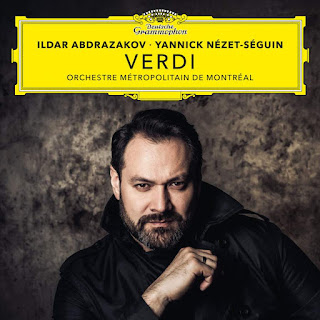
Premiered at the King’s Theatre, Haymarket, in January 1723, Ottone
was the first Handel opera to pair his star draws of the 1720s: the
soprano Francesca Cuzzoni, making her London debut as Teofane, and the
castrato Senesino in the title-role. Both were singers with attitude.
But they met their match in Handel, who reputedly threatened to throw
Cuzzoni out of the window until she agreed to quell her prima donna’s
vanity and sing Teofane’s simple and touching opening aria ‘Falsa
imagine’. Ironically, the aria made Cuzzoni’s London reputation as a
soprano without equal in the ‘pathetic’ style. Centring on the attempts
of the scheming matriarch Gismonda and her unlovely son Adelberto to
prevent King Ottone from marrying the Byzantine Princess Teofane and
assuming his rightful throne, Ottone’s pseudo-historical libretto
is often hopelessly confused. This evidently mattered not a jot to
Handel’s audiences. The combination of Senesino, Cuzzoni and Handel’s
melodic fertility (Charles Burney reported that many of the arias soon
became ‘national favourites’) made Ottone an instant success. With a total of 36 performances over five seasons, it was eclipsed in popularity only by Rinaldo during his lifetime.
These days Ottone ranks well down the Handel pecking order,
not least because of the plot’s muddles and absurdities. On CD, though,
it has fared relatively well, with two period-instrument versions
appearing in quick succession from Nicholas McGegan (Harmonia Mundi,
3/93) and Robert King (Hyperion, 7/93). Both do the opera fair justice.
But this new version, recorded in the sympathetic acoustic of the Villa
San Fermo in the Veneto, easily surpasses them in consistency of casting
and dramatic flair. Without pressing the tempos unduly (except when
dancing on hot coals in the Overture’s fugue), George Petrou draws
rhythmically animated, sensitively coloured playing from the crack
Italian band. Abetted by an alert, unfussy continuo, recitatives are
lively and naturally paced, though not even Petrou and his singers can
save the final denouement from blink-and-you-miss-it perfunctoriness.
The cast is uniformly strong. Ottone is more mooning lover than
strutting hero, always ready to buckle in a crisis. But Max Emanuel
Cencic, with his unusually powerful, sensuous countertenor, rescues him
from self-regarding wimpishess. He sings his tender opening siciliano
and Act 3 lament ‘Dove sei?’ with intense beauty of line and tone,
always responsive to the text, and throws off his bravura arias with
unforced brilliance. As the patiently suffering (even by Baroque opera
standards) heroine, the American soprano Lauren Snouffer has a warmer,
richer voice than either of her CD rivals and a nimble coloratura
technique. With a mezzo glint in her tone, she catches well the
passionate undercurrents of Teofane’s music, whether in ‘Falsa imagine’,
her yearning plea for peace ‘Affanni dei pensier’ or the nocturnal
garden scena in Act 3. Some may find her quick vibrato slightly
disconcerting in Handel, though I soon got used to it.
Gismonda’s inconsistently drawn character, veering between ruthless
ambition and blithe exuberance, is softened by the lulling ‘Vieni, o
figlio’, an exquisite outpouring of maternal love. Ann Hallenberg,
always a superb Handelian, sings this with musing inwardness, using
delicate ornamentation to enhance the intensity of the da capo.
Elsewhere she musters all the imperiousness and, in the splenetic
‘Trema, tiranno’, venom that the matriarch’s music demands. In the role
of Matilda, in love with the contemptible Adelberto in spite of herself,
mezzo Anna Starushkevych sings with sensitivity and (in her fiery
denunciation of Ottone) plenty of temperament, though her coloratura can
be bumpy. Xavier Sabata, as Adelberto, is mellifluous in his quieter,
lyrical music but tends to hoot when spitting out defiance in ‘Tu puoi
straziarmi’. Eschewing mere bluster, bass-baritone Pavel Kudinov sings
with fine, clean resonance and impressive agility – a hint of
tenderness, too, in his final aria – as the jolly pirate Emireno, who
eventually turns out to be Teofane’s brother in disguise (don’t question
the maths – this is opera seria).
Despite minor provisos,
this new recording is emphatically the
version to have of an opera whose dramatic flaws are redeemed by
magnificent individual scenes and any number of good tunes. It is also
more complete than its rivals, including, as David Vickers explains in
an informative note, all the music heard at the 1723 premiere plus two
new arias added for Cuzzoni’s benefit night later that season and, as an
appendix, three numbers Handel composed for Senesino when he revived
Ottone in 1726.
(Richard Wigmore / Gramophone)

















